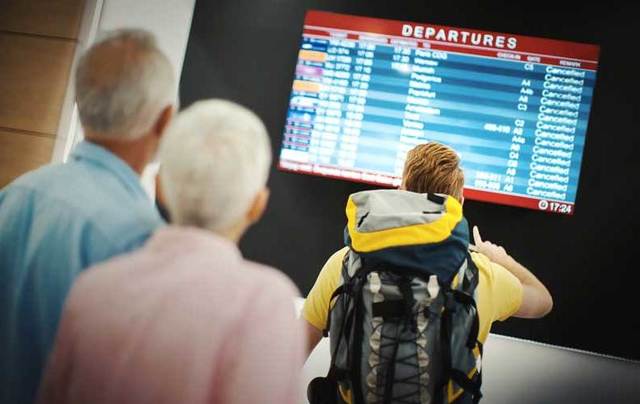Airlines in the European Union must offer passengers either vouchers or a cash refund in the event of canceled flights, the European Commission, the executive branch of the EU, reaffirmed today.
Read More: Ryanair chief slams UK's post-travel quarantine plans as “nonsensical”
Margrethe Vestager, the Executive Vice President of the European Commission, said in a press briefing on May 13: “If you have lost your job, if this is your entire holiday budget for travelling that sits in these tickets you cannot use anymore, then you need a refund.
"And that is why we say this is your right, full stop.”
The announcement comes after a number of EU states, including Ireland, petitioned the European Commission to suspend current legislation that guarantees cash refunds in the event of cancellations in light of the coronavirus crisis which is creating a cash flow problem for many airlines.
“When the wording of the regulation was conceived, the current global crisis and its impact on air travel could not have been foreseen,” the letter stated.
Today, the EC has effectively denied that request and reaffirmed the legislation that states passengers are entitled to a voucher or a cash refund in the event of cancellation.
The reaffirmation of passengers' rights was included in the European Commission's guidance on how to safely resume travel and reboot Europe's tourism in 2020 and beyond, which was published on May 13.
The guidelines read in part: “Under EU rules, travelers have the right to choose between vouchers or cash reimbursement for canceled transport tickets (plane, train, bus/coach, and ferries) or package travel.
“While reaffirming this right, the Commission's recommendation aims to ensure that vouchers become a viable and more attractive alternative to reimbursement for cancelled trips in the context of the current pandemic, which has also put heavy financial strains on travel operators.
“The voluntary vouchers should be protected against insolvency of the issuer, with a minimum validity period of 12 months, and be refundable after at most one year, if not redeemed.
“They should also provide passengers sufficient flexibility, should allow the passengers to travel on the same route under the same service conditions or the travellers to book a package travel contract with the same type of services or of equivalent quality. They should also be transferable to another traveller.”
Read More: Taoiseach says he is “optimistic” air travel will resume this year
One EU official said: “The commission has taken very clearly the opinion that it is not going to weaken the existing passenger rights that are extremely fundamental.”
Didier Reynders, commissioner for justice and consumers at the EC, said: “European consumers can be reassured. The commission will not downgrade their EU rights for reimbursement for canceled travel.
“We recommend, however, making vouchers more attractive for those who chose this option. In the meantime, freedom of movement is the right European citizens cherish most. It is important to restore this right as soon as the circumstances allow it.”
Airlines For Europe (A4E), which represents a number of European airlines including Aer Lingus and Ryanair, however, issued a statement which “decries the lack of leadership and clarity” regarding today’s guidelines from the EC.
A4E says that the EC's recommendations are “unclear and non-binding,” and will “create further confusion for airlines and passengers at a time when clear, decisive regulatory action is urgently needed.”
Thomas Reynaert, Managing Director of A4E, said in the statement: “While passengers have a clear right to reimbursement of their tickets, we believe refundable vouchers, or a delayed reimbursement, represents a fair and reasonable compromise given the unprecedented liquidity situation airlines are currently facing.”
The A4E statement added: “By issuing unclear recommendations instead of the decisive regulatory action airlines so desperately need, more airlines may be forced into further financial distress, with up to 6.7 million aviation jobs at risk across Europe.”
The Irish government is still advising against all non-essential overseas travel due to coronavirus. You can learn more about the travel advice during the pandemic from Ireland's Department of Foreign Affairs here.
Read More: Phase 1 of reopening Ireland set to begin a week from today - here’s what can change




Comments